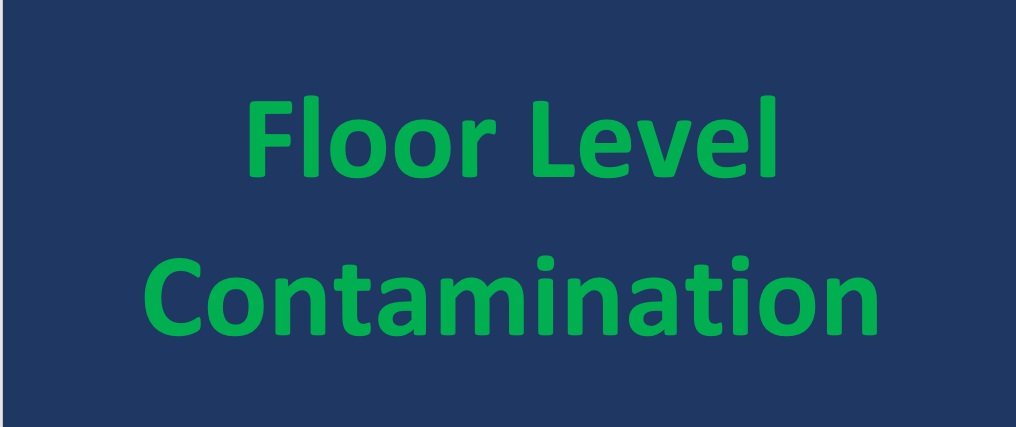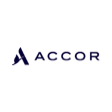The Rebirth of the Pharmaceutical Sales Force

Many believe that drug pipeline challenges, structural changes in the industry, and the rise of digital channels are heralding the end of the pharmaceutical sales rep role. But there’s no need to mourn the death of the sales rep model. There are many reasons, in fact, to celebrate its rebirth.
It is of belief that the healthcare industry’s focus on delivering improved patient outcomes, along with advances in digital technologies, creates an environment in which sales reps will be more valuable than ever. With new skills and digital tools, they will address the needs of a broader network of buyers and influencers and deliver innovative solutions that help doctors deliver better service to their patients.
The writing is on the wall. Or so you think.
Three factors are changing the pharmaceutical and healthcare industries and directly impacting the traditional pharmaceutical sales rep model:
• Reimbursement models. Healthcare reform in the United States is changing the manner in which doctors are paid. In the area of Medicare, for example, 85 percent of payments will be tied to patient outcomes by 2016. That rises to 90 percent by 2018.
• Changing buyer profiles. Today, integrated delivery networks (IDNs) own more than 60 percent of physician group practices. They define treatment protocols. Doctors no longer do.
• Digital. Medical and healthcare professionals now access the medication information that sales reps previously controlled from a variety of sources, including medical conferences and conversations with their peers. Digital technologies are particularly important. They provide new and better information in a fast and more convenient way. The effect of digital is significant. Recent Accenture research found that nearly one in four direct sales force interactions targeting doctors have been replaced with digital interactions.
Many pharma companies and industry observers believe these trends mark the beginning of the end for the sales force. But what if the same market changes and technological advances that are eroding sales effectiveness are really opportunities for reinvention? What if the sales reps can play an essential role in helping doctors better serve their patients and deliver improved health outcomes?
The age of new relevance
Opportunities abound for pharmaceutical companies to significantly improve sales when they reinvent their sales models. Leaders that embrace the new reality won’t continue to jettison their existing sales forces; they will hire again (and, in fact, many are doing so already). But it won’t be business as usual. Leaders will reinvent their sales teams to be more responsive and relevant to today’s customers and influencers. Customer-centricity will no longer be an optional strategy; it will be mandatory. In this world, three imperatives will take center stage:
• Addressing “new” needs. When sales reps understand the objectives and incentives of the doctors with whom they interact, they can deliver product messages in ways that better speak to the doctor’s needs. If a doctor’s measurement metrics include clinical outcomes and treatment protocol adherence, for example, reps can frame the conversation to describe how certain products and services will help the doctor achieve his or her goals.
• Delivering “new” value. A recent Accenture research study found that 58 percent of patients use pharmaceutical services when they are aware of them. And, more than 85 percent of patients expect their healthcare providers to inform them of these services.
Yet, doctors are increasingly time constrained. Sales reps can help by offering tools and solutions such as patient-focused services, access and discharge programs, and other patient-oriented solutions that go beyond the product they are selling. When they do that, they are no longer considered just sales reps; they are team advocates committed to improving patient outcomes.
• Selling to “new” customers. Pharmaceutical companies can amplify the relevance of the sales force even more when they put talent structures in place that align to the needs of today’s broad set of buyers and influencers. Doctors, patients, payers and institutional administrators are all now invested in outcome-focused care. They all expect to be part of the conversation regarding approved therapies and treatment protocols. A sales organization that engages effectively with this wider audience can have a significantly greater impact. Accenture helped one pharmaceutical client identify $1 billion in additional revenue potential by understanding the influence large healthcare systems had on prescribing specific product classes. For another client, Accenture helped build and launch a dedicated sales team focused on targeting doctors who were incented to improve patient outcomes. These new reps worked closely with institutional sales teams to pull through protocol changes, focus on institutional priorities, and drive account-level performance.
The sales model, reinvented
Pharmaceutical companies have an unprecedented opportunity to redefine and reinvent the concept of sales. They need to replace traditional sales models with sales and service models that help stakeholders achieve their objectives. To navigate this transition, sales organizations need to:
· Address the needs of a broader network. A re-invigorated sales capability requires a change to the traditional sales culture. The activities of the sales team no longer focus on visiting with doctors to share information; the focus is on addressing the needs of a broader network of buyers and influencers. This means pharmaceutical companies need to evaluate the marketplace to identify opportunities for the sales organization to add value, while ensuring they don’t introduce regulatory and compliance risk. This, in turn, requires the sales organization to work with marketing and other functional areas to develop tools, services and programs that stakeholders notice and value. Coordination and collaboration among sales resources and between sales and non-sales functions are critical.
· Evolve skills of existing reps. Meeting the needs of doctors, IDNs, group practices and other pharmaceutical customers requires companies to re-think their traditional sales roles, introduce new roles and responsibilities, and strategically deploy sales resources. To support a flexible customer engagement model, it’s important to “upskill” existing sales reps so they are able to elevate and extend the conversations they have with doctors and other stakeholders. New messaging, new assets and digital tools designed to enhance patient outcomes all play a role. So does a comprehensive understanding of healthcare and training in areas such as IDN business strategies, outcome metrics and healthcare incentive management. As just one example, Accenture helped a leading pharmaceutical company identify the skills new sales hires needed to succeed in today’s evolving marketplace. New hires with these skills outperformed their peers in terms of sales goal attainment by 30 percent.
· Introduce new sales talent. It is likely that pharmaceutical companies will need to hire new resources with strong B2B sales skills. They need key account managers, for example, to manage relationships with institutional purchasing organizations and connect conversations across a non-linear, networked sales environment. These individuals are experts in agile selling, which involve working with intermediaries, channel partners, customers and even competitors to extend a company’s reach. They are highly adept at identifying or creating new sales opportunities, and managing those opportunities through the sales pipeline—a skill set few pharmaceutical reps currently have. At one specialty pharmaceutical company, Accenture found that the “Key Account Managers” were actually market access account managers and high performing district sales managers— not true B2B skilled sales people. Changing this talent profile became a key component of this client’s sales transformation.
· Amplify the impact of human sales interactions with digital technologies. There is no either/or proposition when it comes to pharmaceutical sales in the digital age. Companies do not need to choose between digitizing their sales experiences and optimizing their face-to-face sales capabilities. What they need to determine is how they can use digital technologies to make pharmaceutical sales teams more relevant than ever. Sales reps already use mobile applications to track customer accounts, trigger alerts and manage relationships in a variety of ways. There’s no reason these applications can’t be tailored to enhance the face-to-face experiences and deliver even more value. For example, if sales reps know that a doctor’s performance is measured on adherence to treatment protocols or hospital re-admissions, digitally enabled “task pathways” can guide the reps to pull up a tailored set of products and solutions that can help satisfy those goals—all within seconds. By augmenting core face-to-face selling approaches with digital tools, sales teams can take their interactions with buyers to the next level. They can, in effect, amplify the value they bring to the table by going to market with a multi-speed sales approach that not only addresses the preferred interaction methods of unique buyers, but also continually optimizes the customer experience.
(Abstract from the source: “The Rebirth of the Pharmaceutical Sales Force” | Accenture Life Sciences: Rethink Reshape Restructure…for better patient outcomes – www.accenture.com/LifeSciencesBlog |Copyright © 2015 Accenture)
مقالات من Mohammed Abdul Jawad
عرض المدونة
Imagine the harmful impact on our kids’ health when they become totally absorbed in watching televis ...

FREE ONLINE COURSE · Click here for REGISTRATION · Aim of the Course · Contract Management is a ...

FREE WEBINAR - AVAILABLE ON DEMAND · Title: Floor Level Contamination in Cleanrooms and Controlled E ...
المتخصصون ذوو الصلة
قد تكون مهتمًا بهذه الوظائف
-

مدير عام فندق نوفوتيل التحلية
تم العثور عليها في: Talent SA A C2 - منذ يومين
Accor Hotels Al Qaisumah, المملكة العربية السعوديةخبرة واسعة في إدارة الفنادقالفاخرة أو المنتجعات السياحية. · درجة عالية منالدراسة في إدارة الأعمال، إدارة الفنادق، أو مجال ذيصلة. · مهارات قيادية ممتازة والقدرة على توجيهوإلهام الفرق الفنية والإدارية. · القدرة على تطويروتنفيذ استراتيجيات لتحقيق أهداف الفندق وزيادةالإيرادات. · ...
-
أخصائي p&pm
تم العثور عليها في: Talent SA A C2 - منذ 4 ساعات
WhiteCrow Research Dhahran, المملكة العربية السعوديةخبرة لا تقل عن خمس سنوات في مجال الاتصالات.تعد المعرفة والفهم لصناعة الطاقة أمرًا ضروريًا.المعرفة والفهمللعلاقات الدولية. عمل؛ الأوساط الأكاديمية؛ تكنولوجيا؛ ويفضل الخبرةمع الثقافات المختلفة.وجود خبرة في إدارة المشاريع تغطي جميع جوانبتطوير التقارير والعروض التقديمية.اللغة الإنجلي ...
-

مشرف خدمة الغرف
تم العثور عليها في: Talent SA A C2 - منذ يومين
Accor Hotels Mecca, المملكة العربية السعوديةمهارات تواصل ممتازة ولباقة فيالتعامل مع الضيوف والموظفين. · القدرة على تنسيقوتنظيم جدول العمل لفريق خدمة الغرف. · معرفةبإجراءات النظافة والتعقيم الصحي في الغرف والأماكنالعامة. · القدرة على التعامل مع الشكاوى وحلالمشاكل بفعالية. · ...


التعليقات
Pascal Derrien
منذ 7 سنوات #1